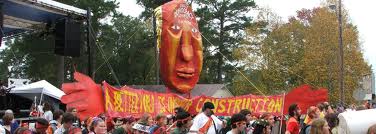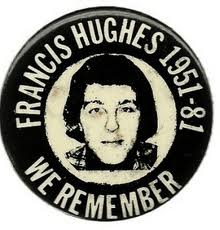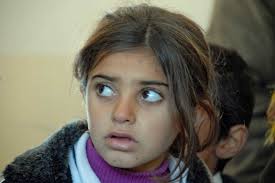MODULE 6: Civil Wars
School of the Assassins (1980)
Salvadoran Archbishop Oscar Romero was assassinated in 1980 by graduates of the School of the Americas. He’d be just one of many to suffer that exact fate – though certainly one of the more prominent ones.
When people use phrases like “CIA-backed coup,” you might wonder, what exactly does that mean? For example, logistically? One likely element of any such plot are frequent trips from somewhere in Latin America to the military base with a small city attached known as Columbus, Georgia.
Columbus is home to Fort Benning, where they have multilingual training courses in how to destabilize governments, organize coups, torture dissidents, and maintain dictatorships.
Over the years there have been enough protests outside the gates of the military base that the school within it has changed its name from School of the Americas to something else, but the school remains. In recent years, however, with more left-leaning governments being elected to power in many Latin American countries, the school is becoming less popular as a place to send your soldiers for training.
“Song for the SOA”
Why Don’t They Play You On The Radio? (1981)
One of the first things the new Reagan Administration did upon coming to office was to deregulate the telecommunications industry. The long era of local radio stations that had allowed at least some degree of local control over what kind of music people might be likely to come across was over. From now on, massive corporations like Clearchannel would almost completely dominate everything on the commercial airwaves.
“Why Don’t They Play You On The Radio?”
Ten Men Dead (1981)
Over a decade after the Bloody Sunday massacre that swelled the ranks of the Irish Republican Army, the conflict between the IRA and the British occupying forces and paramilitaries was continuing, with many dead. In the war for international popular opinion, the world was divided between those for whom a freedom fighter was a terrorist, and those for whom it was the other way around.
When IRA prisoners launched a hunger strike, they had one basic, symbolic demand: to be recognized as prisoners of war, not as common criminals. That British Prime Minister Thatcher would allow people to die from hunger, one after another, rather than give in to this symbolic demand, horrified many people around the world. It was probably the high point in international popularity for the IRA.
The first hunger striker to die also won a race for British Parliament while in prison. That was Bobby Sands. The second to die was most well-known for his cunning guerrilla tactics as an IRA volunteer – Francis Hughes.
“Up the Provos”
Rent Control (1985)
One morning the United States woke up to find that every state legislature aside from New York and California had banned the practice of rent control – that is, the practice of governments being allowed to have a say in how much landlords can charge their tenants in rent every month. Oregon banned rent control in 1985.
The timing for the forces of gentrification in the country was brilliant. In the 1980’s, most people were still abandoning the urban centers in favor of the suburbs. Rent was cheap – it was a renter’s market, so to speak. Now that there is a housing crisis in so many cities in the US, on the rare occasions that there’s a truly progressive city council that wants to take appropriate action to deal with the crisis (strict rent control policies, for one thing), their hands are tied by the states.
As the years since the 1980’s have progressed, the cost of housing has become a bigger and bigger issue in all of the economically dynamic cities in the US, and increasingly in other countries as well. Historically, when the cost of housing is so out of step with what is financially practical for most people, this is a time of rampant speculation, such as during the Gilded Age.
“Just A Renter”
Weapons of Mass Destruction (1986)
An engineer in Israel named Mordechai Vanunu was working in a nuclear complex when he ultimately realized there was a large arsenal of nuclear weapons there. He took pictures, blew the whistle, and got out of Israel. Then he was arrested off of the streets of Rome by Mossad. He spent 18 years in an Israeli prison after that, most of it in solitary confinement. He’s still not allowed to leave Israel.
Whether or not you support the idea of anyone having nuclear weapons, or of Israel having them, the double-standard that the US has around weapons of mass destruction is very clear: it’s fine for Israel to have a nuclear arsenal, but for an Arab country to posses nuclear or chemical weapons is out of the question.
“Vanunu”
Orange Line Opened (1987)
The 1980’s were far more known for new highways than for new subway lines, but the Orange Line in Boston, Massachusetts bucked that trend. The new subway line would have been a highway, and in fact digging for the highway had already begun when protesters committing civil disobedience at first stalled the project, and then ultimately changed it altogether. Plans for building the highway were scrapped, and instead the transportation planners started planning for a new subway line with a park above it instead.
At the Jackson Square T stop there is a plaque that recognizes the efforts of the activists who caused the highway to become a subway line. Every year in May there is a festival in the neighborhood that would have been ruined by the highway, Jamaica Plain, celebrating the continued existence of the neighborhood, challenged with gentrification as it now is…
“A Brief History of the Orange Line”
November Offensive (1989)
After nearly a decade of a protracted rebellion against the rule by a small clique of big landowners in El Salvador, the rebel alliance, the FMLN, made a bid for power. A shipment of surface-to-air missiles they were hoping to use for the endeavor had been intercepted, and in the end they had to retreat for the capital city because the government’s air force was bombing their own civilian neighborhoods in order to try to drive the FMLN out of San Salvador.
But for several days, the global press was full of pictures of rebels who had taken over buildings, and were guarding them on the roofs, AK-47’s in hand. And almost as often as not, the pictures were of women. Approximately one-third of the fighters in the Salvadoran left forces were women – and in struggles like those in Nicaragua and Vietnam, the numbers of women fighters were similar.
“Unknown Soldier”
Intifada (1987-91)
After twenty years of having more and more land in the occupied West Bank and Gaza taken by Jewish-only settlements (what the settlers inaccurately refer to as “Jewish neighborhoods,” as if they just evolved that way naturally), people rebelled. The Intifada symbolically involved young people throwing stones at tanks – purposefully re-imagining the David and Goliath story for the modern age. Israeli soldiers gunning down stone-throwing youth also became an iconic image of these years of societal rebellion.
Israeli tactics for trying to end the Intifada went through three main phases. Mass arrests, mass brutality, and then assassination. When leftwing Intifada organizer from Beit Sahour, Saed Bannoura, went to a protest one day, he was a target for assassination. Although they fired six shots into him and refused him medical care for hours afterwards, he wouldn’t die. He is one of many wheelchair-bound survivors of Israeli violence during the First Intifada.
“Ballad of Saed Bannoura”
Good Kurds, Bad Kurds (1991)
After the defeat of the Ottoman Empire, former Ottoman lands were divided by the colonial powers in different ways, but one of the themes throughout was colonial efforts to make sure that none of the new states risked becoming too strong. The colonial powers wanted to make sure that if one ethnic, religious or linguistic group within a country might be dominant, there would be another different group that would probably act as a competitor to the throne.
So borders were drawn so that if Sunni Islam was the main religion in a country, there was gong to be a large Shia minority, and vice versa. Or in the case of the Kurdish ethnic and linguistic group, Kurds would become a minority in several different countries, and a majority in none.
As time progressed and the Kurds were used by different powers for different purposes, we arrived at the stage where some Kurds are considered by the US and EU to be terrorists – such as the PKK in Turkey – whereas other Kurds, often made up of the same people with the same political perspectives, such as the YPG in Syria or the Kurdish administration in northern Iraq, are considered US allies in the fight against Islamic State.
“Good Kurds, Bad Kurds”
Is She Your Enemy? (1991)
Iraq attacked Iran in 1980 and the US mostly cheered them on and supplied them with chemical weapons. But when Iraq invaded Kuwait in 1990 the US played a different tune. With the help of certain erstwhile allies such as the UK, the US sent massive armies to Saudi Arabia, from which they bombed Iraq, killing untold numbers of Iraqi conscripts in the process.
Iraq withdrew from Kuwait, and the US never launched a land invasion of the whole of Iraq at that time. With the fig leaf of the United Nations, the US instead launched a sanctions regime against Iraq which financially ruined the country.
Throughout the 1990’s, according to UNICEF, as many as half a million children died unnecessarily as a result of sanctions. And when Bill Clinton’s Secretary of State got on TV and was asked about those half million children, and whether the price was worth it, she replied that yes, it was worth it.
It was Bush Sr who invaded Iraq in 1991, and Bush Jr who invaded in 2003. So the not-very-attentive viewer of events might be forgiven for thinking imperialism in this case is a Republican thing. But throughout Bill Clinton’s two terms in office, sanctions against Iraq were killing vast numbers of people – and US cruise missile attacks against targets in a number of different countries were regular features of Clinton’s presidency (Afghanistan, Sudan, Iraq) along with “boots on the ground” (Somalia, Haiti) as well as full-on air wars (Yugoslavia).
“My Daughter”
Questions/thoughts for further exploration…
The SOA (1980)
If the rhetoric about the US supporting democracies was true, then why have so many of the worst abusers of human rights in Latin America been trained in torture techniques Columbus, Georgia?
Deregulation (1981)
Reagan presided over a deregulation of the media in the US that had profound implications for independent music and independent thought. Is deregulation good for free expression, or bad? The answer in this case, clearly, is the latter.
H Blocks (1981)
The IRA were vilified as terrorists in much of the world’s media, but while in prison, Bobby Sands won a seat in the British Parliament. How do we reconcile these facts?
Rent Control (1985)
One of the roots of the present housing crisis in many US cities today is the fact that the practice of rent control was systematically banned in 48 out of 50 states over the course of the past few decades (in Oregon it was 1985). Why was rent control banned?
Weapons of Mass Destruction (1986)
US leaders go ballistic when certain countries develop nuclear weapons, but although Israel’s stockpile is officially secret, everyone knows it exists and the US looks the other way. Why the obvious double-standard?
A Brief History of the Orange Line (1987)
Civil disobedience gets the goods once again, and what was supposed to be a highway ultimately became a subway line with a park on top instead.
November Offensive (1989)
A coalition of civil society groups saw no other option than to rebel against the corrupt, tiny clique of torturing coffee plantation owners who ran El Salvador. Which side was the US on?
The First Intifada (1991)
After 20 years of losing more and more land to illegal settlements, the Palestinian people rebelled, led in large part by the children. Were these rock-throwing children the pawns of terrorists, as was often claimed in the Israeli media?
Good Kurds, Bad Kurds (1991)
Why is it that the same sorts of Kurdish groups fighting for their people are vilified by the US in certain countries like Turkey, but considered heroes in countries like Iraq and Syria?
Sanctions (1991)
The UN sanctions on Iraq between the wars killed 500,000 children according to UNICEF. Clinton’s Secretary of State, Madeline Albright, said “the price was worth it.”
